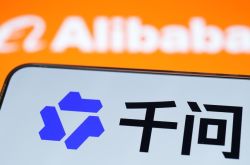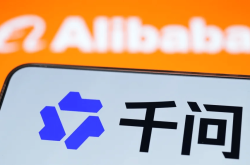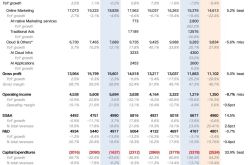Masayoshi Son Reclaims Japan's Richest Man Title, Then Offloads NVIDIA Stake: Is This a Sign of the AI Bubble Popping?
![]() 11/17 2025
11/17 2025
![]() 436
436
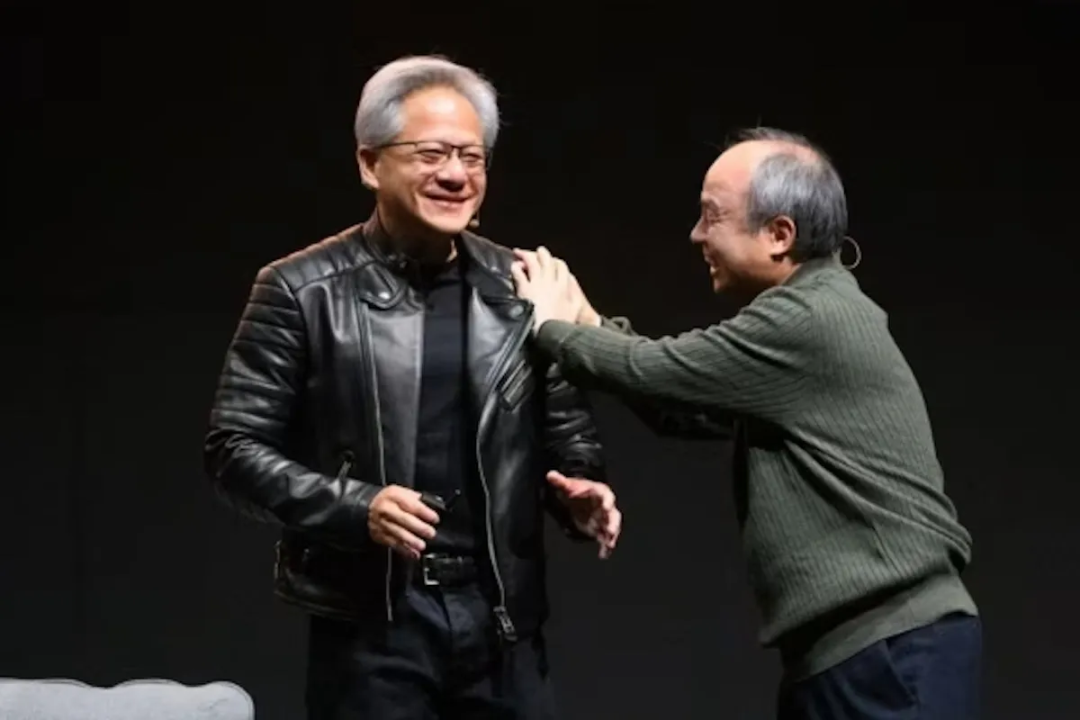
The market might be bracing for the bubble to burst.
Masayoshi Son on the Verge of 'Missing Out' on NVIDIA Once Again
A year ago, SoftBank's Masayoshi Son and NVIDIA's Jensen Huang shared an emotional moment, lamenting their decision to 'sell too early' on NVIDIA. Back then, most believed NVIDIA's valuation was unbeatable. Given another chance, Son would likely feel he hadn't invested enough or held on long enough.
But Son is known for his unconventional strategies. He has once again offloaded his NVIDIA holdings. SoftBank announced it had sold all its NVIDIA shares, pocketing approximately $5.8 billion (around 41.5 billion yuan). NVIDIA's stock price tumbled later that evening, erasing $100 billion in market value overnight. What's the rationale behind this 'bold move'? Is there a more promising investment than NVIDIA?
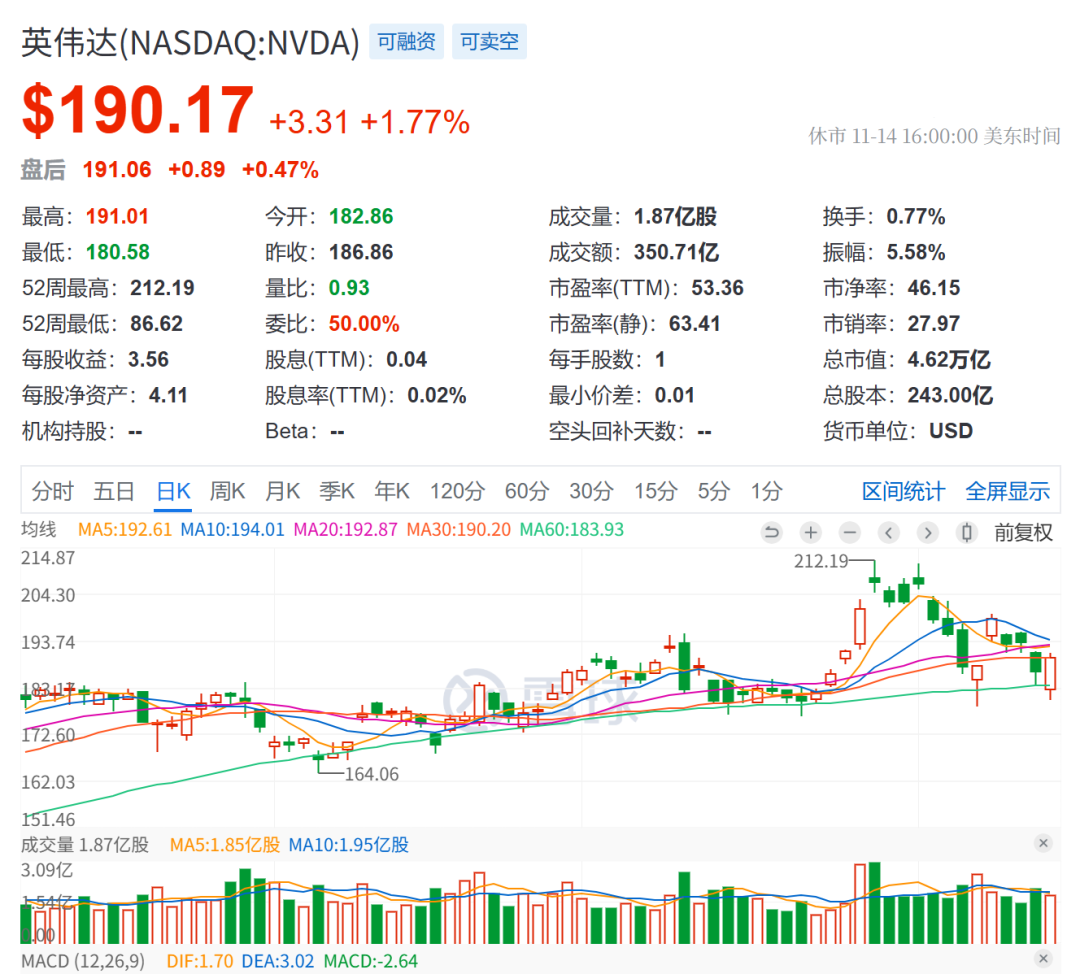
Image source: Xueqiu
Indeed, there is: OpenAI, the linchpin of this AI revolution. Without OpenAI, NVIDIA's story wouldn't have unfolded as it did. But is it premature to bet on OpenAI's application-side breakthroughs? We'll delve into this later.
Son's two offloadings of NVIDIA shares share similarities: his investment philosophy lacks diversification or hedging. Instead, he focuses heavily on leading concepts, adhering to an 'all-in or nothing' approach.
Previously, there was the debacle of WeWork, valued at $70 billion in 2020 but failed to go public, leading to annual losses of up to $100 billion. Later, heavy investments in unlisted tech companies saw valuations plummet in 2022, resulting in annual losses of $32 billion—a record high. Additionally, investments in South Korean e-commerce company Coupang and 'Amazon of food' Zume also incurred significant losses.
However, since the first half of this year, Son, once ridiculed online, regained his title as Japan's richest man by betting on NVIDIA, acquiring Arm and ABB's robotics business, and constructing an AI full-industry chain layout. He became the most inspirational and influential investor on the internet once again.
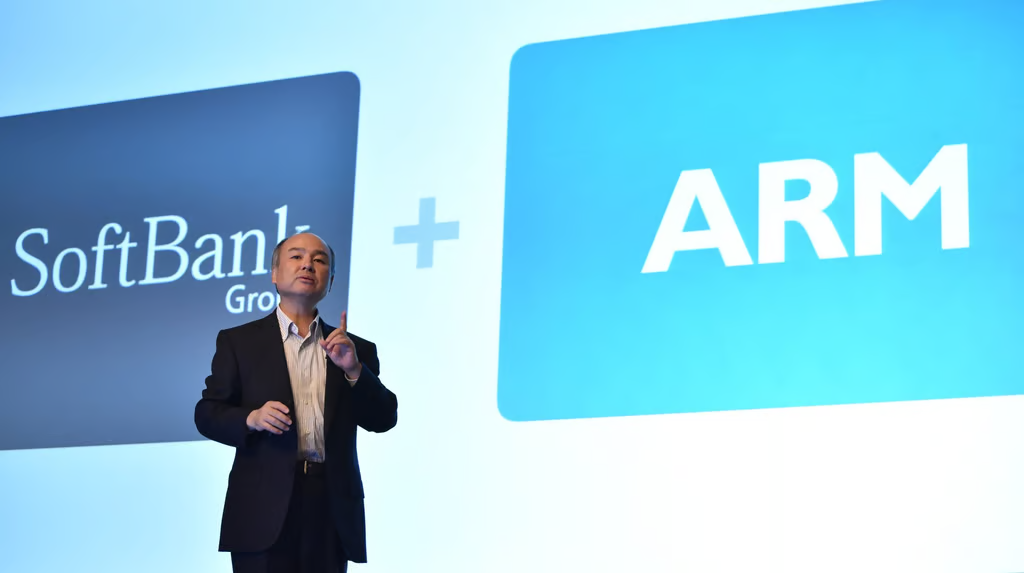
Image source: Internet
But Son has a knack for proving his critics wrong. Recently, SoftBank sold NVIDIA shares, pocketing approximately $5.83 billion, sold T-Mobile shares, pocketing about $9.2 billion, and pledged Arm shares: using its chip design company holdings as collateral to expand guaranteed loan facilities to $20 billion.
As is well known, SoftBank liquidated all its NVIDIA holdings for $3.6 billion in 2019, then repurchased them in 2020 before this latest sale. The previous sale became a cautionary tale in the investment world: if SoftBank had retained those original shares, their value would now exceed $150 billion.
Many focus on Son's failure to hold onto NVIDIA, but the more critical reason was SoftBank's focus on autonomous driving and AI investments at the time. In 2019, Son clearly didn't see NVIDIA as a core AI stock. Sacrificing a mature layout for other potentially more promising investments was a tactic he often employed.
Although he attempted to merge ARM with NVIDIA in 2020, with a deal value of $40 billion, regulatory disapproval caused Son to miss out on NVIDIA again.
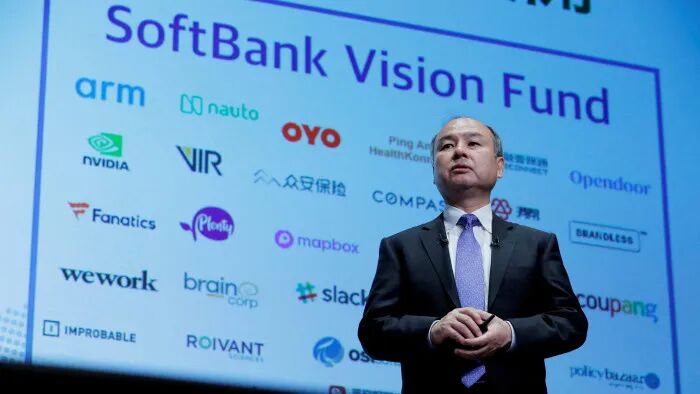
Image source: Internet
It's evident that Son's investments lean more toward a financial perspective, focusing on market potential and performance rather than value investing. This was true last time, and it's true now. OpenAI, valued at only $500 billion, is clearly undervalued, so shifting focus to OpenAI makes sense. Due to Son's investment style, issues like buying the wrong company or investing too early or late often arise. So, which category does heavy investment in OpenAI fall into?
Masayoshi Son Goes All-In on OpenAI's IPO
Overall, OpenAI currently resembles an early-stage company rather than one generating explosive application revenue.
'Some say I suffer from DeepSeek anxiety and spend too much on AI,' Son has publicly stated more than once. He believes AI will impact at least 5% to 10% of global GDP over the next decade. 'If the annual return is $9 trillion to $18 trillion, why save? Competition is intensifying, so we must lead, be brave, and go all-in.'
When asked about the timing of selling NVIDIA shares during an earnings call, SoftBank CFO Yoshimitsu Goto said the company needed liquidity to fulfill its investment commitment to OpenAI. 'This year, our investment in OpenAI is substantial, requiring over $30 billion, so we must liquidate some existing assets,' he said.
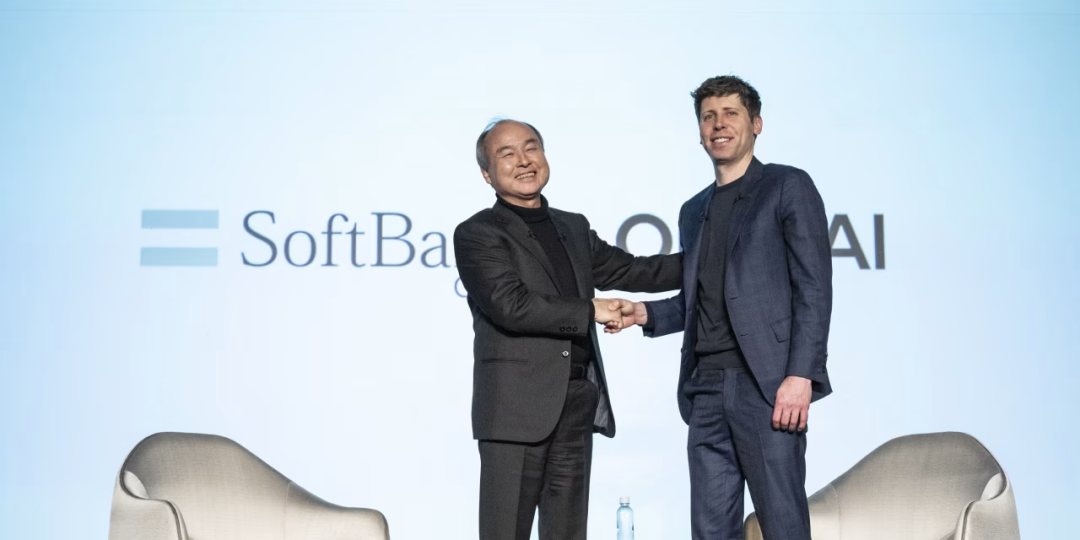
Image source: Internet
But is it really as simple as switching heavy investments? Could it be a bearish view on NVIDIA's future valuation, with concerns that the AI bubble collapse will concentrate at the top? Currently, it seems more like a 'pre-emptive exit' signal.
Coincidentally, Bridgewater, Wall Street's largest hedge fund, released its Q3 holdings report on Friday. The report showed Bridgewater significantly reduced its stake in chip giant NVIDIA by nearly two-thirds in Q3. It also cut its Alphabet holdings by over half, Amazon by about 9.6%, and Microsoft by over 35%. In a report to investors, Bridgewater CIO Karen Karniol-Tambour warned that current market stability faces increasing risks.
When asked if liquidating NVIDIA involved valuation judgments, Goto declined to comment, only stating that adjusting asset allocations is the fate of investment firms.
Son, of course, wouldn't admit to being bearish on NVIDIA, but observers have already picked up on negative signals.
Last week, SoftBank announced a '1-for-4' stock split plan, set to take effect on January 1, 2026. Historically, every SoftBank stock split since the 21st century has coincided with significant global market turmoil.
- June 2000 split (1:3): Dot-com bubble burst.
- January 2006 split (1:3): U.S. real estate bubble burst.
- June 2019 split (1:2): Pandemic outbreak in early 2020 triggered global market declines.
What kind of waves will this split bring? This isn't alarmist; the bond market seems to have sensed danger. SoftBank's recently issued bonds carry interest rates exceeding 8%, indicating bond investors demand higher risk premiums. David Gibson noted, 'But the stock market seems to ignore this potential, uncovered risk.'
SoftBank's trust in OpenAI may surpass that of any previous company: $8 billion in investment returns from OpenAI were recognized as profit by SoftBank without actual cash outlay, merely based on a commitment.
Wall Street analysts point out that SoftBank may face a $54.5 billion gap between its committed investment total and actual available funds, risking overcommitment.
In the latest earnings report, OpenAI was mentioned 100 times, compared to only 14 mentions for NVIDIA.
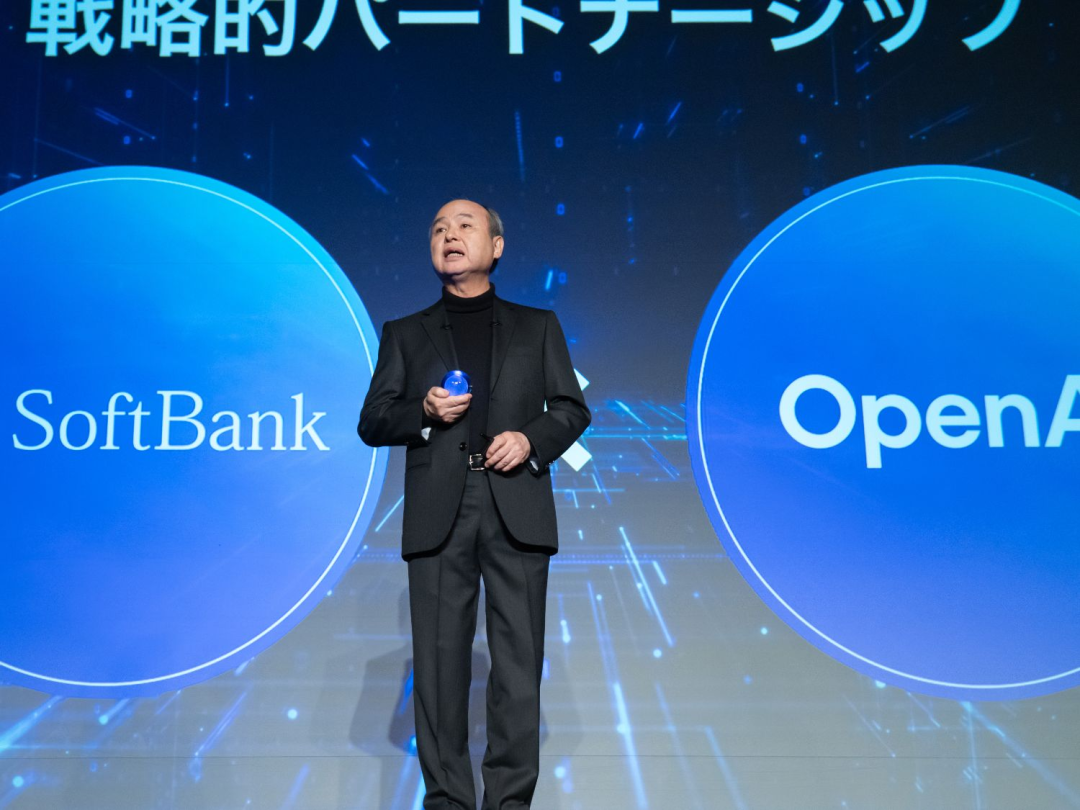
Image source: Internet
Can SoftBank stay afloat by betting on OpenAI, fearless of bubble risks? Probably not.
An OpenAI executive publicly mentioned that 'computing power investments may require government guarantees.' This sparked a sell-off in U.S. tech stocks, with six major tech giants losing over $400 billion in market value overnight.
'The U.S. stock market faces severe downside risks, with a sharp correction possible in the next 6 months to 2 years,' Jamie Dimon, CEO of JPMorgan Chase and a Wall Street icon, previously stated. He called asset price inflation driven by AI a 'concerning issue,' noting that many assets appear to be entering bubble territory.
In October, OpenAI CEO Sam Altman also rarely commented that bubbles exist in certain parts of the AI sector, with some 'foolish' startups easily securing large funding.
Some institutions estimate that OpenAI expects losses exceeding $5 billion in 2025. With its disclosed $1.4 trillion infrastructure investment commitment, total cash burn over the next few years could reach over $100 billion. Even with support from giants like Microsoft, sustained massive cash consumption places immense pressure on the company. Market concerns persist that under hardware bottlenecks like chip scarcity, AI training costs will only rise. Once investor confidence wavers, a 'tech bubble burst' chain reaction could ensue.
Currently, OpenAI cannot resolve such funding issues and can only rely on 'circular transactions' to sustain the market. For example, Microsoft invested about $13 billion in OpenAI while designating its Azure as OpenAI's exclusive cloud provider.

Image source: Internet
Another example: NVIDIA agreed this year to invest up to $100 billion in OpenAI for joint large-scale data center construction, with OpenAI committing to purchase millions of NVIDIA GPUs to fill these racks. Oracle, an early OpenAI investor, signed an agreement this year to provide $300 billion worth of cloud services to OpenAI over the next five years.
Nobel laureate in economics Paul Krugman compared this phenomenon to a 'self-devouring ouroboros': 'Revenue generated on the surface is actually just the same funds circulating among companies.'
Sequoia partner David Cahn put it more bluntly: 'If a company can only survive in an environment of infinite financing, it's fundamentally flawed.' Referring to current trends like 'achieving $2 million ARR in 10 days' and 'consecutive financing rounds tripling valuations,' he neither blindly pursues nor is complacent about such stories: 'Too much money makes founders and teams think they've already won, but the real challenge is surviving after momentum fades.'
Can OpenAI go public successfully? Probably, but its biggest issue isn't funding—it's the lack of massive power support.
By 2028, U.S. data centers alone will require 57 gigawatts of electricity, but utility companies can supply at most 21 gigawatts by then, leaving a 36-gigawatt gap. Beyond power, this includes land, water resources, fiber networks, and even production capacity for critical grid equipment like transformers.
These physical bottlenecks cannot be resolved through financial means alone. Circular transactions create an illusion of 'infinite demand' but may collide with the reality of 'finite supply.'
Final Thoughts
Historically, every tech bubble has manifested differently, and bubble bursts don't necessarily mean tech revolution failures. A prime example is the early 2000s dot-com bubble, where massive investment losses didn't equate to tech revolution failure. The internet revolution quickly rebounded after a brief downturn.
Thus, industry insiders deeply involved in AI today prefer saying, 'The risk of not investing far outweighs the risk of investing.' Nobody wants to be left behind by competitors during an exponential revolution.
The likely winners won't be 'oil-to-chip' companies; those using computing power to create products have a chance to smile through the bubble.
References:
The $10 Trillion AI Bubble Source: LatePost
SoftBank Liquidates NVIDIA, Cashes Out $5.8 Billion Source: FORTUNE
Masayoshi Son Cashes Out to Bet on OpenAI Source: National Business Daily




